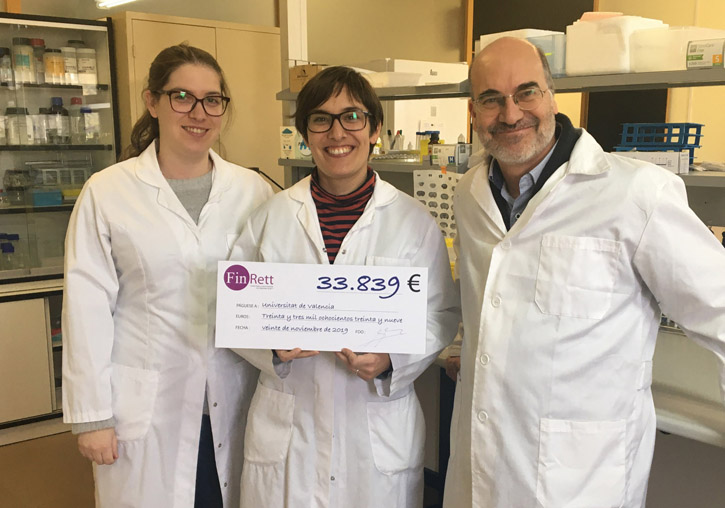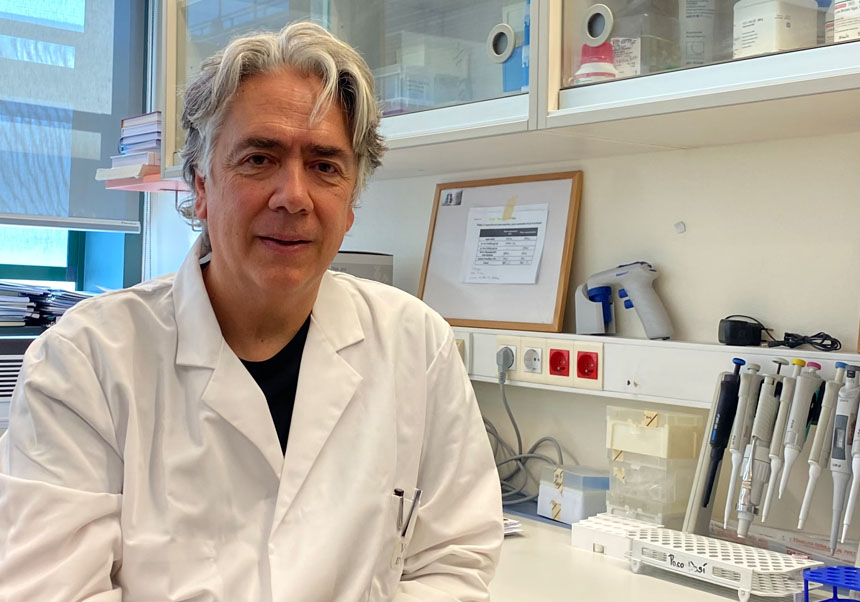The Universitat de València receives funds to research the Rett Syndrome’s biological bases
- Scientific Culture and Innovation Unit
- November 21st, 2019

The Catalan and Spanish Rett Syndrome Associations have granted funds to investigate the biological bases of this medical condition to a group of researchers from the Universitat de València headed by Carmen Agustín, Professor in the Department of Cellular Biology. This is a pathology caused by a mutation in a gene on the X chromosome that especially affects girls and that between 6 and 18 months of life causes stagnation of development and loss of acquired skills such as language or the ability to walk, as well as later autistic characteristics.
The project “The endocannabinoid system and Rett syndrome: neuro-anatomical, neuro-chemical and behavioural analyses” has received €33,839 to investigate the biological basis of Rett using animal models with which to find out what changes are produced by the mutations found in Rett and to develop new approaches with which to improve these brain abnormalities. It should be noted that there are currently no effective therapies to cure this syndrome and those available are limited to improve some of the symptoms. The project will study the endocannabinoid system applied to Rett Syndrome.
In this sense, the group, which also includes Enrique Lanuza (Department of Cellular Biology); Elena Martínez Rodríguez, PhD at the Universitat de València; Monica Santos, (University of Coimbra); and Moisés García Arenzibia, will use endocannabinoids, lipidic substances (fats) that many neurons can produce and that function as modulators of neuronal activity by binding to specific receptors. Compounds derived from Cannabis sativa can also bind to these receptors, and produce known effects in the brain.
Now, the specific chemical components of these drugs, purified and usable in appropriate doses rates, are being evaluated as potentially interesting for alleviating many symptoms of different neurological conditions. The research team believes they could also be used in Rett Syndrome, since other research suggests that the endocannabinoid system may be affected in the pathology. The research will use animal models, genetically modified mice that show symptoms similar to those present in human patients. In addition, the Universitat de València team wants to know the changes in the endocannabinoid system related to specific neuronal and behavioural characteristics shown by individuals affected by Rett.
FinRett is a fund to finance research projects for the cure or improvement of Rett syndrome. It was born in 2017 within the framework of a collaboration agreement between the Catalan and Spanish associations of this disease, to give way to the need to carry out an effective and transparent common project to unify the collections that different associations, organisations and individuals carry out, and whose purpose is the scientific research of Rett syndrome.
More information: https://www.finrett.org/programa_finrett
















